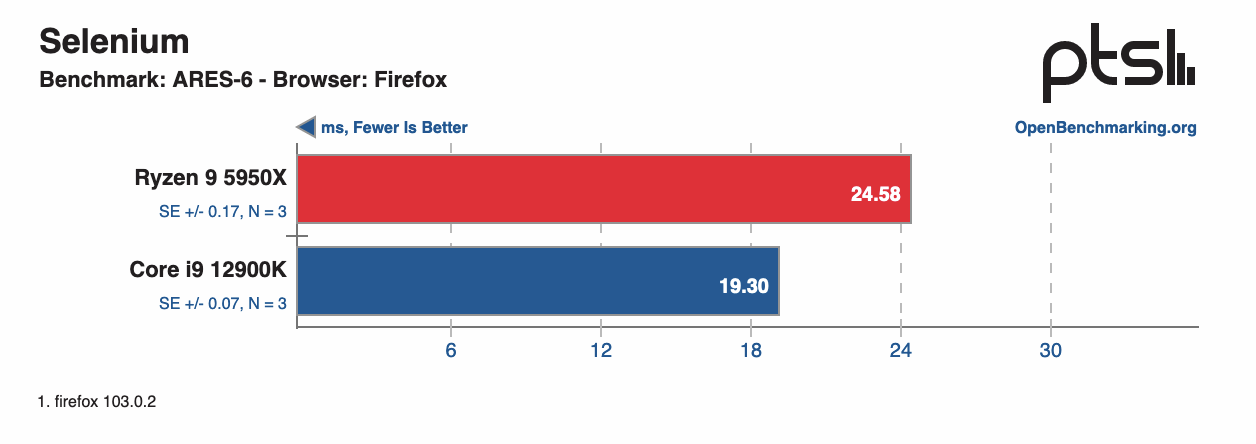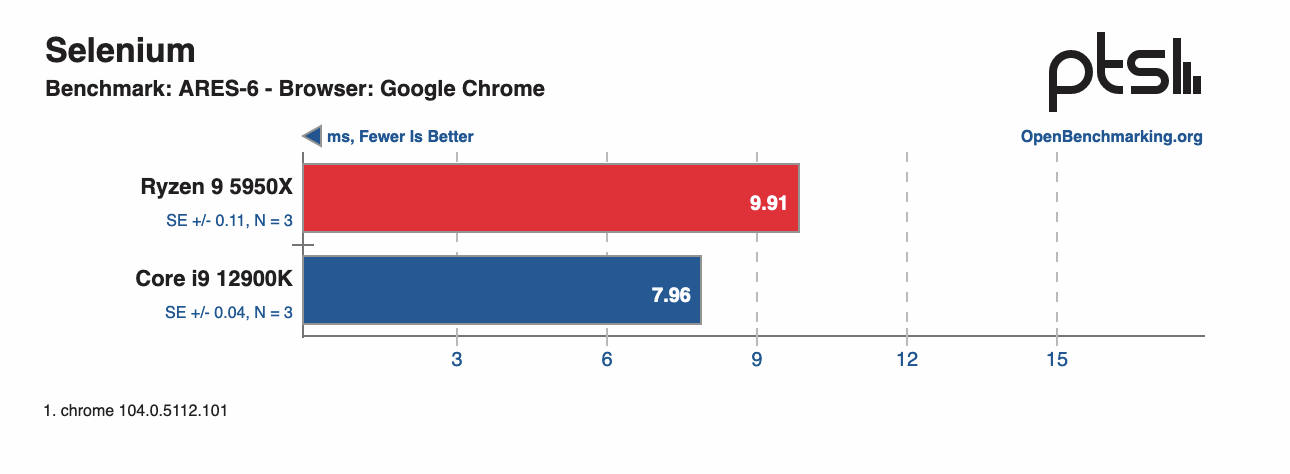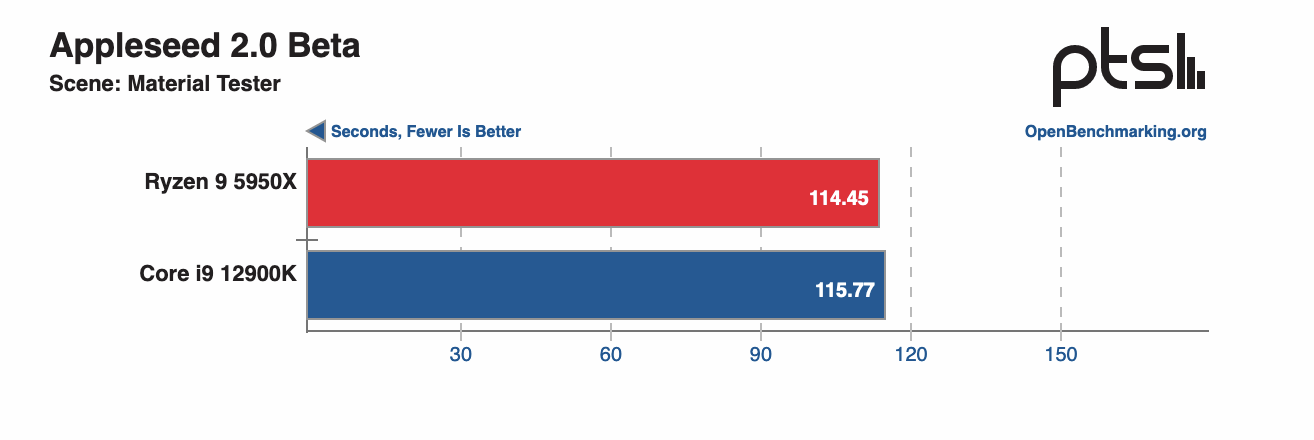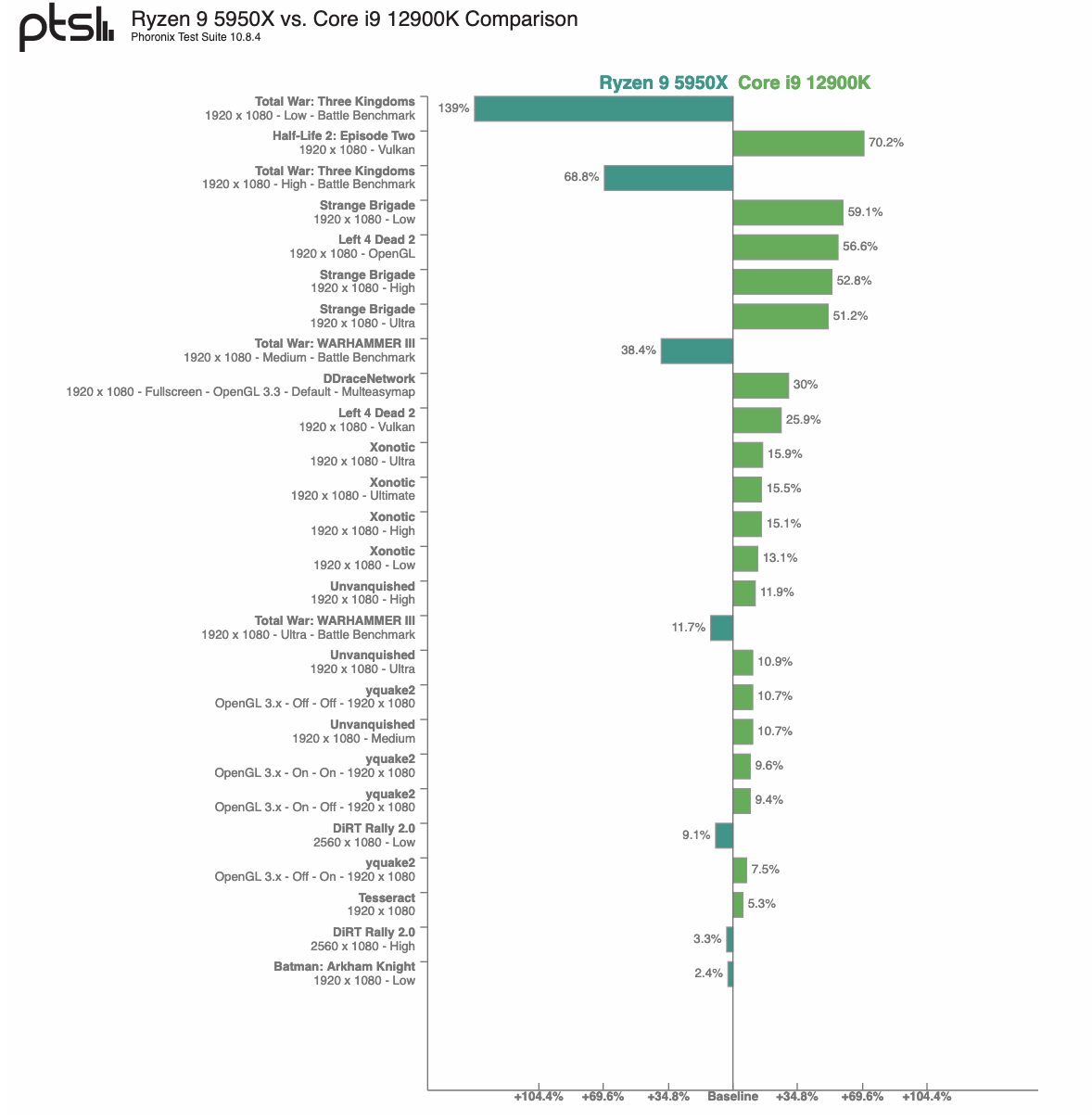Intel Core i9 12900K and AMD Ryzen 9 5950X are the most powerful desktop CPU models of the two manufacturers. Although the specifications of Intel Raptor Lake and AMD Zen 4 have surfaced one after another, they have not yet been officially launched, so why not Let’s take a look at the performance of the most powerful desktop CPU currently on the market on Linux 6.0.
The foreign media Phoronix recently conducted a large number of CPU benchmark tests under the Linux 6.0 kernel. In addition to the differences between the two CPUs mentioned above, the device configuration for this test is as follows:
- System: Ubuntu 22.04 LTS
- Kernel: Linux 6.0
- Desktop Environment: GNOME Shell 42.2
- Compiler: GCC 12.0.1
- RAM: 32GB
- Graphics Card: AMD Radeon RX 6800 XT
- Video memory: 16GB
A total of 415 different benchmarks have been conducted this time across many different fields, so let’s take a look at the specific performance of the Ryzen 9 5950X and Core i9 12900K under Linux. There are many test items in this test, so let’s look at the results first. When the results of all 400+ benchmarks were geometrically averaged, the results were as follows:

As you can see from the graph above (higher scores are better), the Intel Core i9 12900K is on average about 18.5% faster than the AMD Ryzen 9 5950X in many benchmarks. The performance gap of nearly 20% is not small, but how you choose depends largely on which workloads are more important to you (check out a selection of individual benchmarks below).
Selenium:
The test uses Selenium WebDriver to run various browser benchmarks in different web browsers (lower scores are better):


Blender:
Blender is an open source 3D authoring and modeling software project. This test is Blender’s Cycles benchmark (lower scores are better):


Appleseed
Appleseed is an open source production renderer focused on a physically-based global illumination rendering engine designed primarily for animation and visual effects (lower scores are better):


Although the overall performance is slightly worse, the Ryzen 9 5950X performs better than the Core i9 12900K in 3D rendering/graphics workloads such as Blender, Appleseed and Darktable. If the user’s work is related to it, then buy AMD’s CPU can be given priority, otherwise it is more suitable for Intel’s CPU.

Another thing I have to say is that while the average performance of the Intel Core i9 12900K is excellent, its power consumption is also much higher than the objects in the comparison test (as shown above). In terms of CPU power consumption across the benchmark, the Intel Core i9 12900K draws an average of 23% higher (128 watts vs. 104 watts), and even 66% higher peak power consumption (247 watts vs. 149 watts).
Nowadays, with the help of compatibility layers such as Wine and Proton, the game performance of Linux systems is getting better and better; coupled with the hot sale of Steam Deck game consoles, more and more games are now optimized for Linux systems. Then let’s take a look at the game performance of the two CPUs under Linux.
The games selected for this test and the performance test results for each game are as follows (both native to Linux and games running through Steam Play):

In all of these Linux gaming tests, we can see that Intel outperforms most gaming scenarios. Similarly, after taking the geometric mean of all benchmark results (as shown in the figure below, the higher the score, the better), the Core i9 12900K is about 6.5% faster than the Ryzen 9 5950X.

But surprisingly, in the game test, the average power consumption of AMD Ryzen 9 5950X is higher than that of Core i9 12900K, but the peak power consumption of the latter is still higher.

The full benchmark report for the Intel Core i9 12900K and AMD Ryzen 9 5950X is available at the link below.
Benchmarks under the Linux 6.0 kernel: link
Linux Gaming Benchmarks: Link
#Linux #stronger #Intel #AMD #News Fast Delivery
